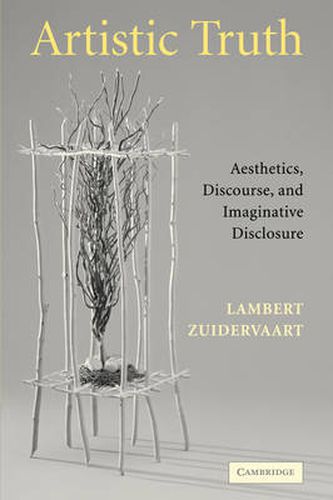Readings Newsletter
Become a Readings Member to make your shopping experience even easier.
Sign in or sign up for free!
You’re not far away from qualifying for FREE standard shipping within Australia
You’ve qualified for FREE standard shipping within Australia
The cart is loading…






It is unfashionable to talk about artistic truth. Yet the issues traditionally addressed under that term have not disappeared. Indeed, questions concerning the role of the artist in society, the relationship between art and knowledge, and the validity of cultural interpretation have intensified. Lambert Zuidervaart challenges current intellectual fashions by proposing a new hermeneutic theory of artistic truth that engages with both analytic and continental philosophies and illuminates the contemporary cultural scene. People turn to the arts as a way of finding orientation in their lives, communities and institutions. However, as the author shows, philosophers, hamstrung by their own theories of truth, have been unsuccessful in accounting for this common feature in our lives. This book portrays artistic truth as a process of imaginative disclosure in which expectations of authenticity, significance and integrity prevail. Understood in this way, truth becomes central to the aesthetic and social value of the arts.
$9.00 standard shipping within Australia
FREE standard shipping within Australia for orders over $100.00
Express & International shipping calculated at checkout
Stock availability can be subject to change without notice. We recommend calling the shop or contacting our online team to check availability of low stock items. Please see our Shopping Online page for more details.
It is unfashionable to talk about artistic truth. Yet the issues traditionally addressed under that term have not disappeared. Indeed, questions concerning the role of the artist in society, the relationship between art and knowledge, and the validity of cultural interpretation have intensified. Lambert Zuidervaart challenges current intellectual fashions by proposing a new hermeneutic theory of artistic truth that engages with both analytic and continental philosophies and illuminates the contemporary cultural scene. People turn to the arts as a way of finding orientation in their lives, communities and institutions. However, as the author shows, philosophers, hamstrung by their own theories of truth, have been unsuccessful in accounting for this common feature in our lives. This book portrays artistic truth as a process of imaginative disclosure in which expectations of authenticity, significance and integrity prevail. Understood in this way, truth becomes central to the aesthetic and social value of the arts.